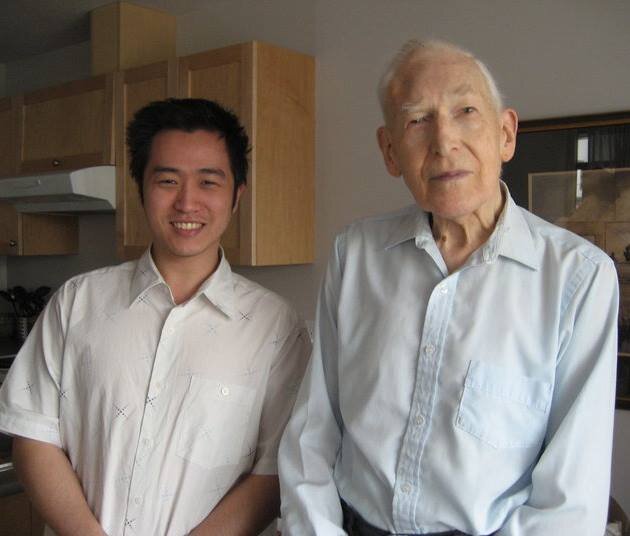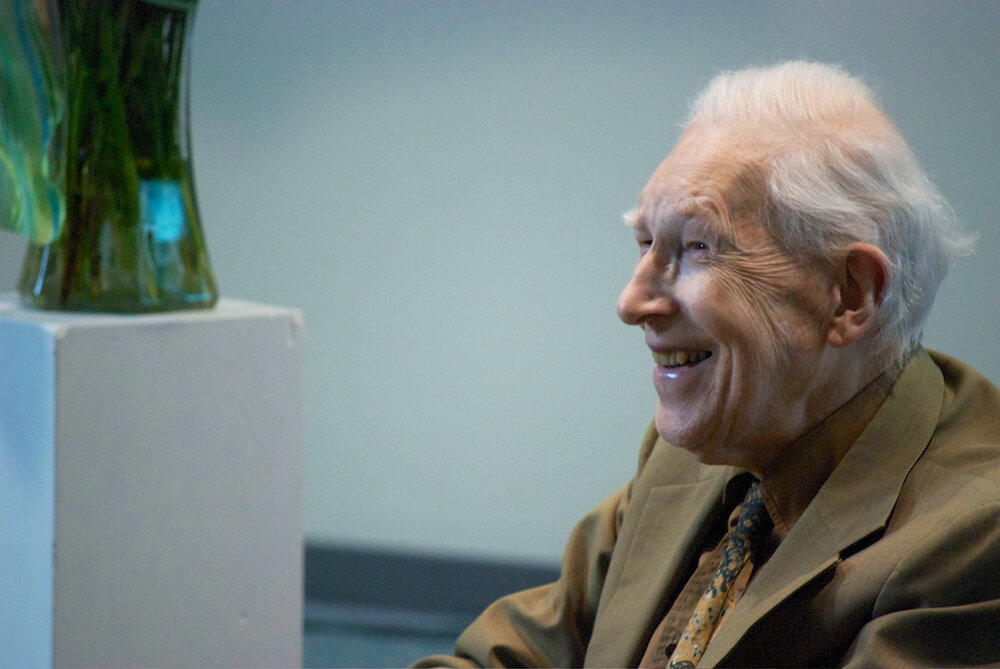In East Asian traditions, the relation of pupils to their masters is often described in filial terms. It’s like how doctoral students in Germany would look up to their supervisors as “Doktorväter” (doctor-fathers). Dr. Packer was one of very few such fatherly figures to my Asian-Canadian mind — though I never expressed these feelings directly to the Englishman, who became my mentor.
The first time I saw Dr. Packer was at the Orpheum Theatre in Vancouver, B.C., when I was still an undergraduate student. I was already a huge fan, and when I saw him at the doors after the concert, I was overwhelmed with excitement. The conductor of the performance that evening happened to be my friend, Jahja Ling, a faithful servant of our Lord Jesus. I went backstage and grabbed Jahja, telling him that Packer had attended the concert. Jahja’s face, at first wearied and covered in sweat after a splendid performance of Brahms’s Fourth Symphony, suddenly brightened up. He literally ran to the front door. When we caught up to Dr. Packer on the sidewalk, we started jumping up and down (not literally) like little boys.

Dr. Packer was still offering seminars when I began my M.Div. at Regent. The words with which he began the first session of the semester have been sealed upon my heart: “At this institution, you’ll probably have heard a number of ‘Packer proverbs’. You may have been told, ‘The purpose of theology is doxology.’ Every Packer class starts by singing doxology. So, let us stand up.”
From the way he sang, I could see why Professor Alister McGrath would insinuate in his biography that Dr. Packer’s early aspirations to becoming a jazz musician was not built upon sound self-awareness. His musicality notwithstanding, Dr. Packer’s voice was heavenly in the sense that he sang with a worshipful heart that gave me a glimpse of the saints singing praises to the Lord face-to-face.
One of the marvels in these seminars was how Dr. Packer would fall asleep during student presentations, only to wake up afterward and comment on extremely fine details of the papers, as if he had taken meticulous notes. I’m not sure if he was aware that we were wondering about his ability to listen attentively while in “napping mode,” but he told us his secret: “Coffee is a gift of God. It keeps your mind awake.”
Among Dr. Packer’s favorite books was Richard Baxter’s The Saint’s Everlasting Rest. As many of us know, the way Dr. Packer writes is characterized by his urgency to not only “set forth orthodoxy in ink,” but also to “search the heart” of the reader. To Dr. Packer, Baxter’s opus was a prime example of this kind of writing. The hope to which Baxter’s text attests in preparation of his own funeral was dear to Dr. Packer’s heart.
Another passage that Dr. Packer was exceptionally fond of is from Mr. Standfast in Bunyan’s Pilgram: “This river has been a terror to many; yea, the thoughts of it also have often frightened me… The waters indeed are to the palate bitter, and to the stomach cold; yet the thoughts of what I am going to, and of the convoy that waits for me on the other side, do lie as a glowing coal at my heart.”
Like his beloved Puritan predecessors, Dr. Packer was a man who was always ready to come face-to-face with death. One of his deepest regrets about Christianity today was the popular “heretical belief” among Christians, that “people shouldn’t die.” He followed the example of Baxter and saw himself as a “dying man preaching to dying men.”
Now that he has gone to be with the Lord, I think back to his life and his ministry, as well as my personal encounters with him, and I can’t stop thinking of the proclamation, “Precious in the sight of the LORD is the death of his saints” (Ps. 116:15). As for me, I can’t wait to see and listen for myself the new doxology that Dr. Packer is now singing endlessly to our triune God.
Photo Credit: Ken McAllister | Regent College

